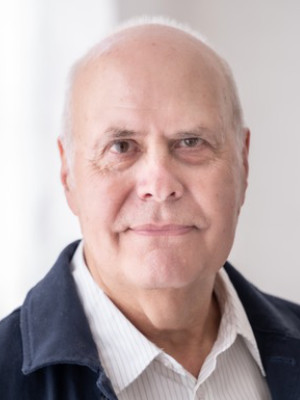Adam Pounds Biography
Adam Pounds was born in Walthamstow, east London, the youngest son of Annie Margaret Pounds (neé Crisp) and Edward Arthur Pounds. He was educated at William Morris High School in Walthamstow, before gaining a place at the London College of Music, where his studies focused principally upon classical guitar, oboe, composition and conducting, the latter with Christopher Fry. During this period, Pounds also studied composition privately with Sir Lennox Berkeley after winning the Lillian Hunt Memorial prize for composition with an oboe quartet.
Pounds subsequently attended Goldsmith’s College, part of the University of London, graduating with a B.Mus (Hons) degree.
He later returned to higher education, obtaining a master’s degree in music education from Trinity Hall, Cambridge where his research focus was the decline of classical music provision in state schools.
Pounds has held a number of posts and has founded several orchestras and musical ensembles during his musical career including the Nelson orchestra in Waltham Forest and the Academy of Great St. Mary’s in Cambridge.
While a student, Pounds worked both as an administrative assistant at Crescendo jazz magazine and as a music copyist for the BBC. He prepared parts for major works by Birtwistle, Alwyn and others for performance by the BBC Symphony Orchestra, continuing this work after leaving music college.
After an early success with his Sinfonietta Pounds composed his first major orchestral piece the Gaelic Triptych in 1983. The work is in three movements and was inspired by a holiday in the Scottish Highlands. The second movement (Corgarff Castle) evokes amisty picture of a lonely and neglected garrison. The finale, subtitled Drumossie Moor is a musical tribute to the Scots who were butchered in the battle of Culloden. The movement ends fittingly with an orchestration of an ancient Scots bagpipe tune. The Festival Overture was a response to a commission from Waltham Forest and the Greater London Arts Council in 1987. This one movement work is an exciting and rhythmic piece which has dynamic brass and percussion parts. Like many of his other works, the Northern Picture is programmatic. The main influence on this piece was the stone circle at Castlerigg. The stone circle represented a meeting place for festivals and dancing as well as worship and the music is a collage of dance, mysticism and combat. An earlier work, Life Cycle, was composed for dance and shares the same idea of programme although in this case it is far more abstract, dwelling on life's journey with the fullness of life being represented by a strong minimalist section.
As well as orchestral music, Pounds has also composed a number of chamber works that include sonatas for violin and for flute, but it was not until the composition of the Second String Quartet that the music returned to a programmatic form. This one-movement work, composed in 2003, contrasts themes of a war-like nature with those of reason and meditation. The CD launch concert for this piece took placein May 2005 coupled with works by Shostakovich and Samuel Barber. Other pieces have been inspired by literature such as the London Cantata.
Pounds has also composed extensively for the voice. This includes a number of carols, an opera Syn based on the novel by Russell Thorndyke and the London Cantata using the words of Blake, Shelley and others.
In May 2021, during the COVID pandemic, Pounds completed his Third Symphony and this was recorded by the Sinfonia of London, conducted by John Wilson for Chandos Records in November 2022. This work is a reflection upon the psychological effects of the lockdowns imposed during the Covid pandemic, an expression of Pounds’ varied emotional reactions to the changes wrought upon everyday life. It was released to wide critical acclaim in February 2024.
The Fourth Symphony was completed in 2023.
